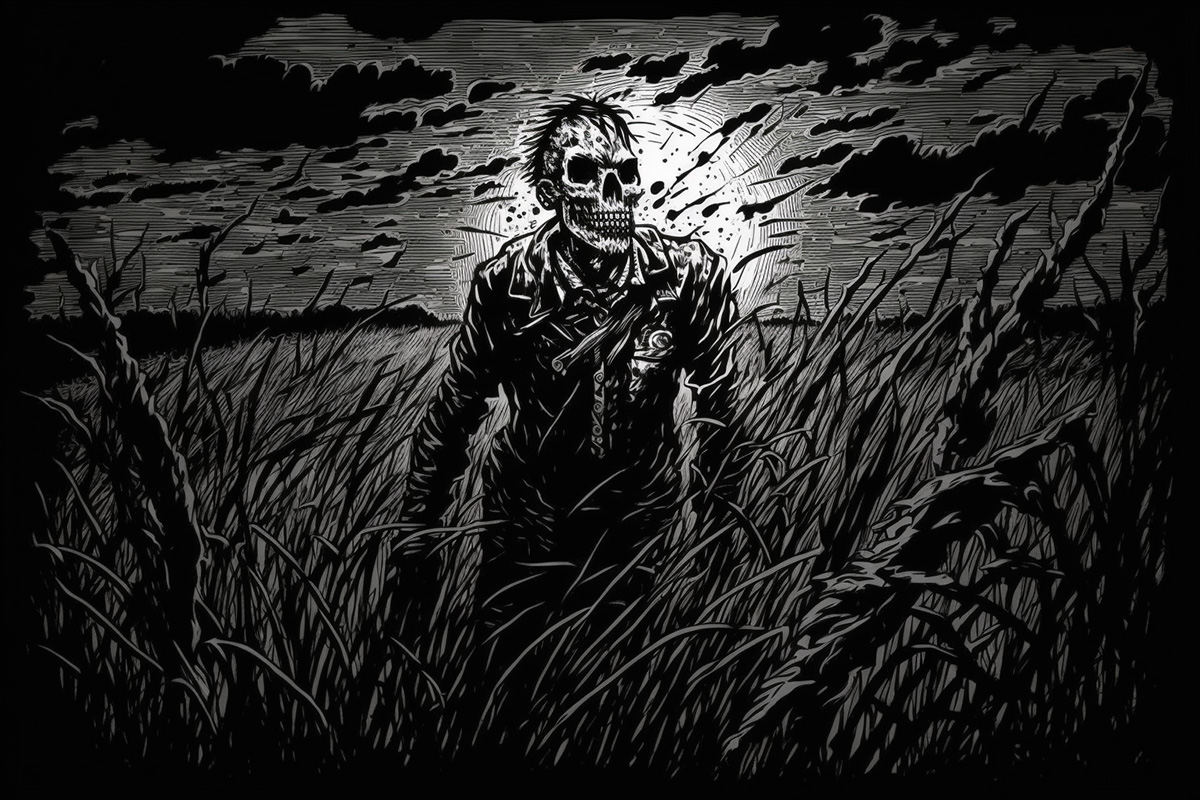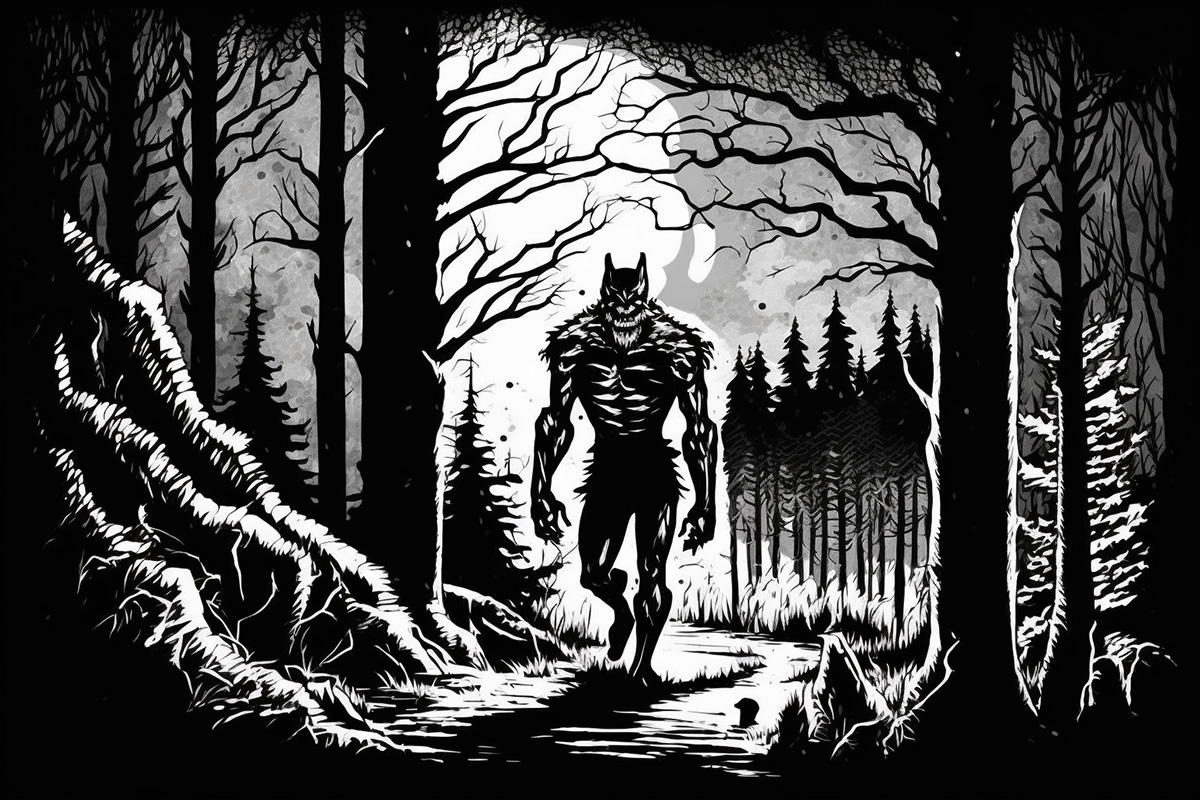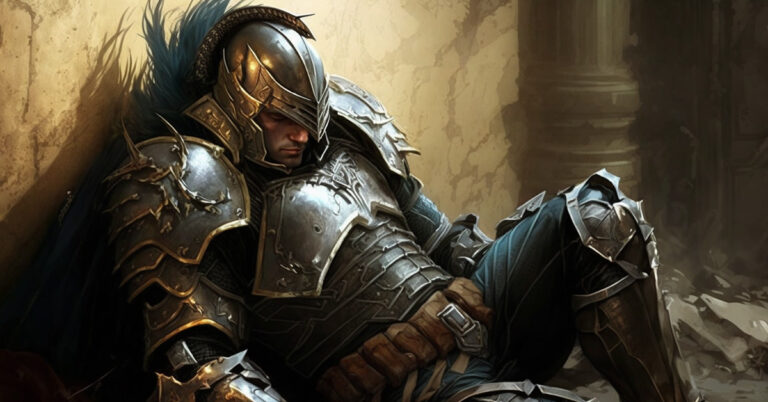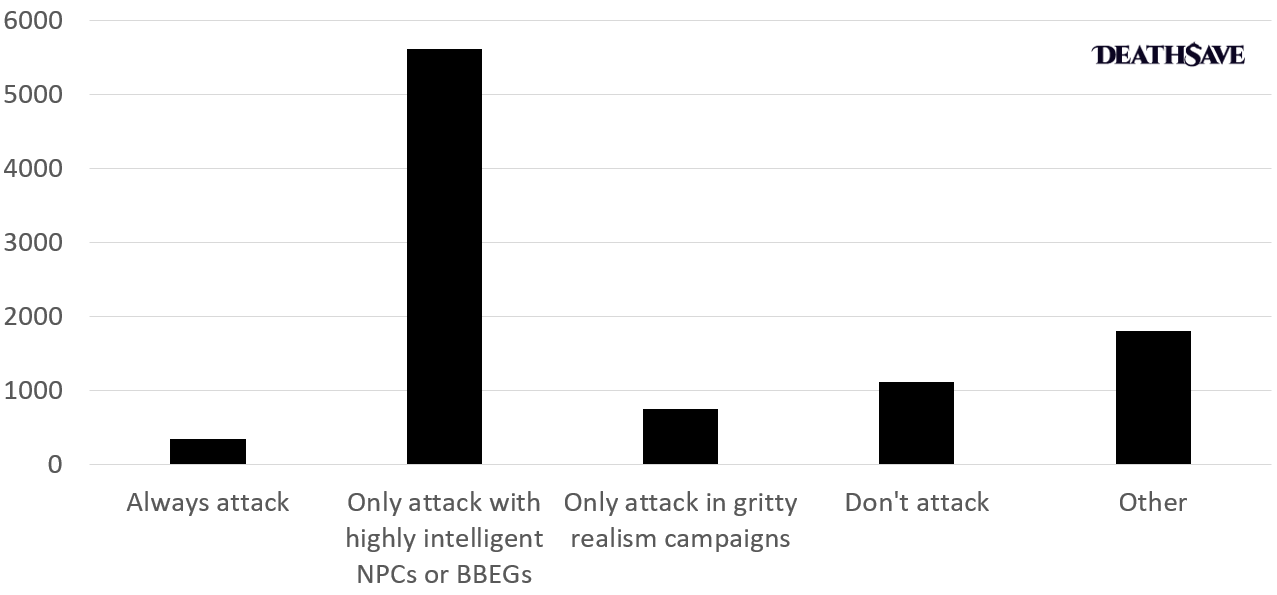Part of the excitement for many players of DnD is the chance of dying. It’s that inherent that lines all of the decisions that party makes that form a large part of the emotional currency at the table; the stakes being their lovingly-crafted characters.
Of course, it’s never fun when you’re DM is trying to kill you, so how far do you go when a player is knocked unconscious and there’s nobody with a Healer’s Kit nearby? Should you move your NPCs in for the kill, or spare them?
Table of Contents
Should DMs attack downed players?
In the vast majority of circumstances, the answer would be “Yes, in certain conditions”, which we’ll explore in a moment. I want to caveat this by reminding everyone there is no objective answer to this question, the world is for your DM and players to create in a way they find fun. It may be that in your session 0, your players agreed that don’t really want character death and just want to explore other RPG elements, which is fine!
A great place to start is a poll of 9,600 other dungeon masters from the Reddit DnD community, asking them “DMs, do you attack unconscious PCs?”
“Do you attack unconscious PCs?” Reddit Poll Results
The overwhelming majority of dungeon masters are attacking players that are unconscious, under certain conditions – so let’s explore those conditions!
When should the DM attack unconscious PCs?
The attacking creature is feral or mindless.
A great example is zombies, as not only do they tend to worry very little about their well-being, they can sense when something is alive. Even after downing a player, it is very likely to just keep biting and clawing, not caring that your dwarf buddy is storming up behind ready to make some zombie mash.
Potentially this could also occur with starved or blood-lusted animals, but there are other options open to the DM, for instance, a wolf that has downed a PC may simply start to drag it away to eat it, neither continuing to attack the player nor the rest of the party.

An intelligent creature wants to stop players from being revived
Woah, there! Before you hurriedly tick the “it’s intelligent, so will immediately immolate your unconscious body” box, let’s have a little chat about meta-gaming. If it were an intelligent creature, there are some things we need to consider first:
1) The creature would not necessarily know that your party can heal, or even more specifically, which players have the ability to heal others. An intelligent creature may decide to focus on a player that is “yo-yo healing” the party, but they’ll need to find out who it is first!
2) Without the above information, it may be reasonable for an intelligent adversary to leave incapacitated enemies that pose no immediate threat in favour of those still actively attacking.
Once you’ve got to the stage in the fight where an intelligent creature can see a change of strategy would be beneficial, sure, bring the pain!
Anger, fear, and hatred
Is the path to attacking unconscious players! There may be great reasons in the unfolding story and roleplaying reasons why a particular NPC hates a player so much that they won’t stop until they are completely spattered with their entrails!
Just killed their best friend in the previous turn? You’re responsible for their lycanthropy? You accidentally used their most prized religious artefact as an ashtray? All very good reasons for you to be bludgeoned after hitting the deck.

They’re in an unfinished multi-attack or similar situation
If you’re fighting the BBEG and you’re taken down in the first couple of swipes, and there’s nobody else in range, it makes (somewhat painful sense) that the attack would continue, despite you being unconscious.
There are other situations you could potentially find yourself in, such as losing consciousness inside a Gelatinous Cube, which would see you continuing to take 6d6 damage per turn.
Expectation is key
Everyone at the table will have expectations of what may or may not happen, early communication and setting of those expectations is how you can avoid disappointment and promote fun. Assuming everyone knows death is a possibility for their characters, you can still coach them as DM by dropping hints as to how dangerous the situation that is unfolding may well be. You might have the antagonist mercilessly kill another NPC or announce their intentions, thus giving your players the information to make decisions.
If they know the risks, understand the situation, and still charge in – well, it’s time to roll for initiative!

